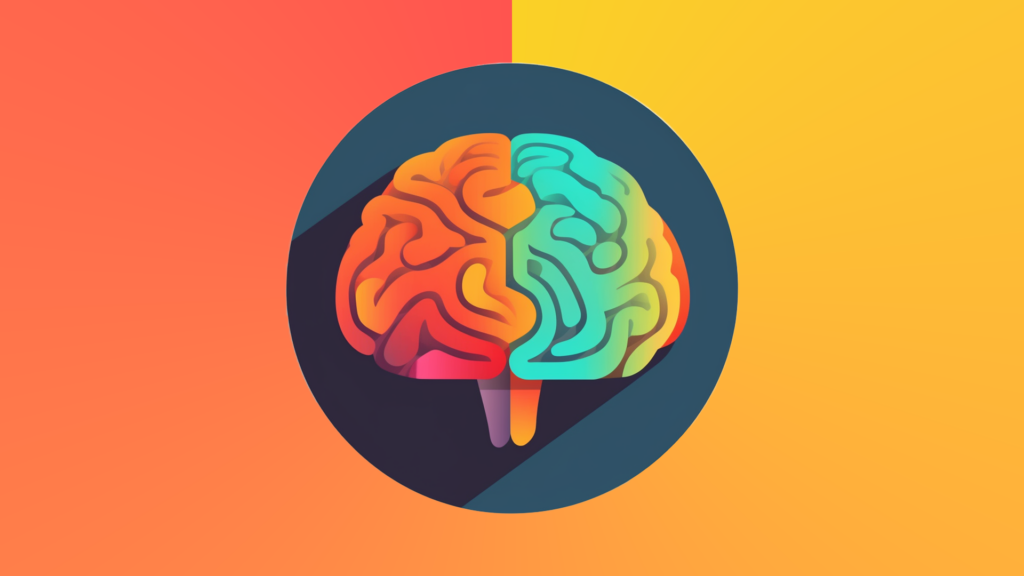
Rec’d on YT | RSA ANIMATE: The Divided Brain
So I’ve been following Iain McGilchrist for a while now and I’m just fascinated by his hemisphere theory. The grabby, highly focused mechanical Lefty; the Emissary, and the more loose focused flow based Right hemisphere has a lot of overlap in the work I’m doing on the Play+ philosophy of play project.
In this new RSA Animate, renowned psychiatrist and writer Iain McGilchrist explains how our ‘divided brain’ has profoundly altered human behaviour, culture and society.
Taken from a lecture given by Iain McGilchrist as part of the RSA’s free public events programme. To view the full lecture, go to http://www.youtube.com/watch?v=SbUHxC4wiWk.
The RSA is a 258 year-old charity devoted to creating social progress and spreading world-changing ideas.
Follow the RSA on Twitter: https://twitter.com/RSAEvents
Like the RSA on Facebook: https://ift.tt/1m60qBX
Listen to RSA podcasts: https://ift.tt/aEnXY0w
See RSA Events behind the scenes: https://ift.tt/GyQcfSK
——
Produced and edited by Abi Stephenson, RSA. Animation by Cognitive Media.
via PVybe on YT: YouTube https://www.youtube.com/watch?v=dFs9WO2B8uI
The Left Hemisphere – The Handler’s Nemesis
The Left Hemisphere is the thing that dog sport and dog trainers need to keep in check too. It’s the complicated domain syndrome – as if there is an equation or an gamified algorithm to life in the actual world. There is no such thing. The moment you’re working with a dog there are no hard and fast rules for handling them.
The Left Hemisphere is not a handler, and is a greedy self centered trainer. Guided by some of the Master, the Right Brain, the Left is a terrific planner and organizer, and can keep us on a steady course, but let it run amok or get too much of the action and your Dog | Handler | Team nexus will struggle to harmonize Emotional Tone and Subjective Aim Subjective Aim refers to the dog's desired outcome or goal in any given scenario within the Play+ training methodology. It is the dog's intention behind their actions, which is formed based on their... More towards successful play. Actually handling and playing joyously with dogs requires the Right hemisphere’s open ended, flowing complete sense of reality.
Subjective Aim refers to the dog's desired outcome or goal in any given scenario within the Play+ training methodology. It is the dog's intention behind their actions, which is formed based on their... More towards successful play. Actually handling and playing joyously with dogs requires the Right hemisphere’s open ended, flowing complete sense of reality.
The Play+ Universe
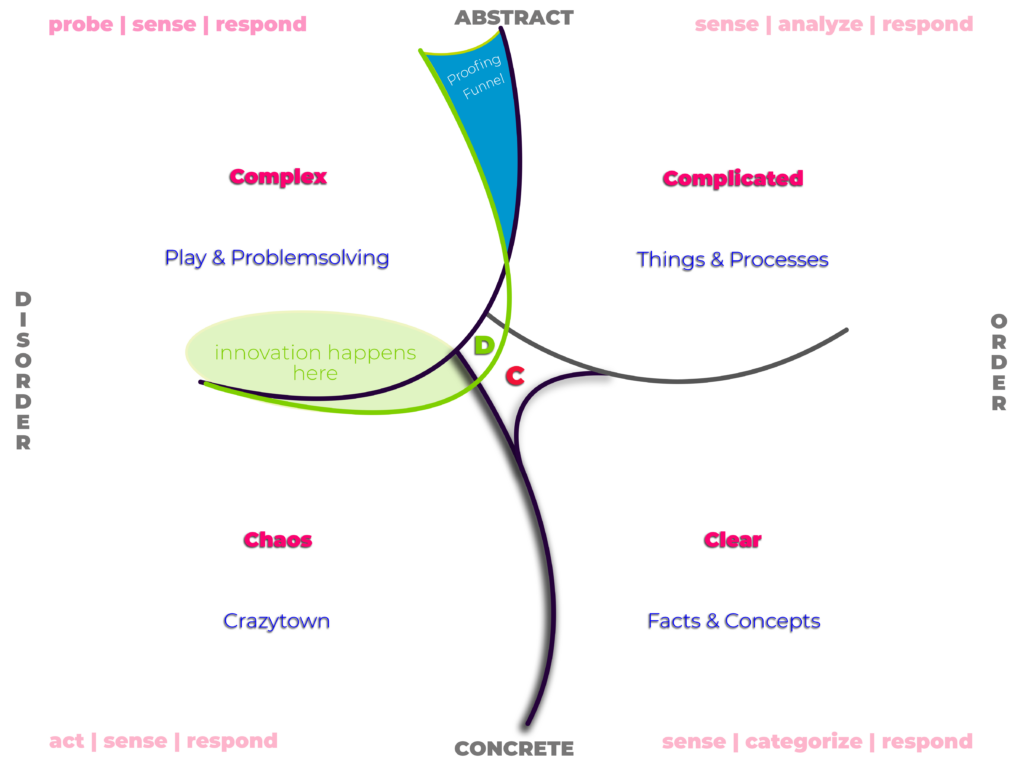
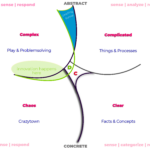 Cynefin is a sensemaking framework used by many organizations to map and visualize processes and workflow throughout the organization. This sensemaking Framework The map gradates Order from left to right - Disorder to... More Framework that has been retooled and refit for Process Philosophy and learning. Similar, but not congruent to the original.
Cynefin is a sensemaking framework used by many organizations to map and visualize processes and workflow throughout the organization. This sensemaking Framework The map gradates Order from left to right - Disorder to... More Framework that has been retooled and refit for Process Philosophy and learning. Similar, but not congruent to the original.This is the Universe as far as you and your dog are concerned. This map holds all the knowledge and experience of the Dog | Handler | Team nexus – every single bit of it. And you can draw it with a stick in the dirt.
Ron Watson, Play+ | The Phenomenal Process Philosophy of PlayPlay is willing, self-induced engagement in, and the experience of, novel, consequent opportunity. More
These are not quadrants, they are domains. The right side of the map depicts the Ordered Domains of subjective reality. All that exists in your mind that potentially can be brought into existence; things the Team nexus knows exist here in the realm of ideas. To the left are the Unordered Domains of the Actual World; the here and now, where all play and interaction takes place. The Matrix is on the right, the actual world is on the left. There are no glitches in the Matrix, but outside the Matrix? Life’s a glitch.
The lower you go on the map the more concrete and factual things get and the higher you get the more abstract and tenuous things are. Movement around this map happens all the time. There are many movement patterns within Play+ Universe some of which will be explored later in this project. Simplicity is not always so simple and abstract does not mean difficult.
Fallacy of Ordered Reality
Reality, the actual world, the left side of the is not an ordered machine it is more like a whirlpool, tornado, or some other organic happening. It’s happening, we’re in it and amongst then it’s gone. The Left hemisphere clutches the right side of this map in a death-grip. Cramming everything it can into order and conccreteness, down and to the right. The Left Hemisphere pulls the Handler into the complicated domain while working, demanding that the rules be obeyed and the results be printed in black and white.
The Fallacy of Ordered Reality is approaching the actual world as if it should be as simple, ordered, and organized as it seems in the mind. There is no way to know what is going to happen in the actual world. Real life doesn’t work like that. The Fallacy of Ordered Reality is the gateway to Confusion and Chaos (also located in the Play+ Universe). The Complicated and Clear Domains in the Play+ Universe, the ordered domains, are where PLAY and creativity go to die.
The Complex Domain and the Domain of Chaos are where life happens, where encounters and actions actually play out. Most of the time they can only be truly understood after the fact. The rules in the book and the rules in your mind are not here right now. They are not part of the actual world. Pretend that they are and give them too much of the mind and the quality and quantity of creative experiences suffers.
Falling victim to this fallacy is one of the most common problems for all dog trainers – I mean it should work like this, “I know it does. Really.” But if you really knew or were actually doing it right it would be working. The way it looks in one’s head is rarely the way it looks in in the actual world. But Left hemisphere don’t care it’s like the Honey Badger of cramming fictitious pegs into actual holes and claiming success or blaming some novel or notable detail. Carrying the rule book at the top of your mind, ready to whip it out and pull a rule check against the Handler at the first sign of trouble leads to a lack of spontaneity and and flow that makes it nearly impossible to be present and leaves one incapable of play.
McGilchrist’s work just pegs this phenomena. It’s stunning.



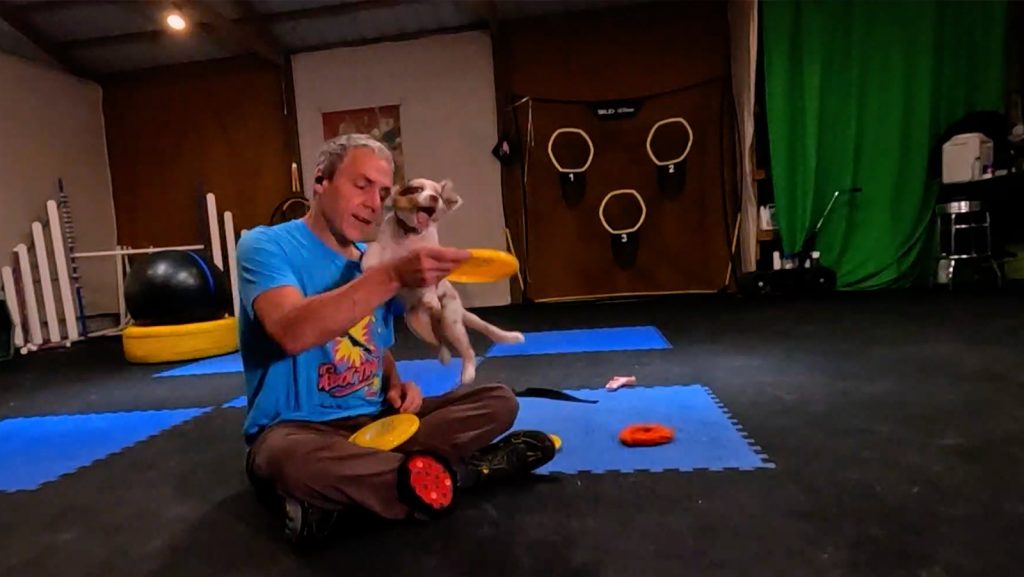
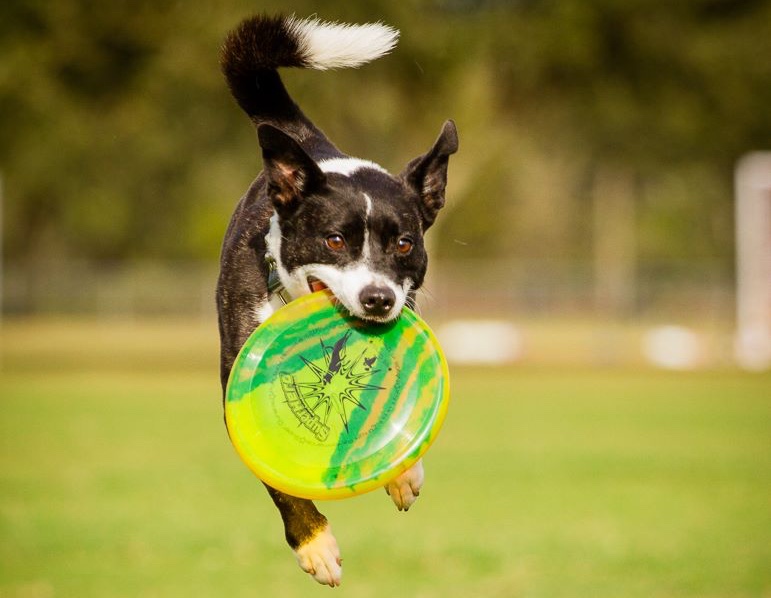
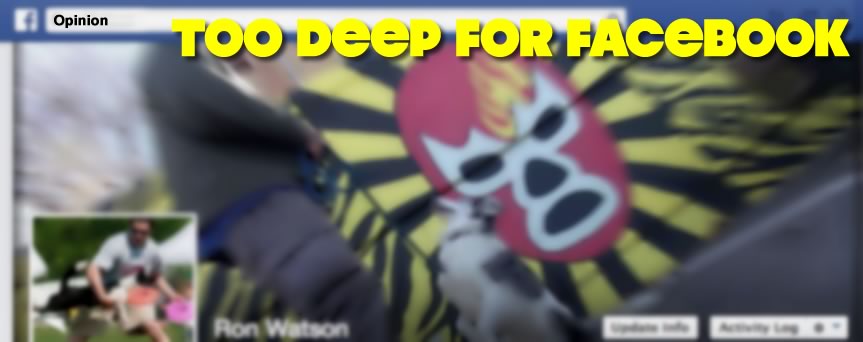

Responses